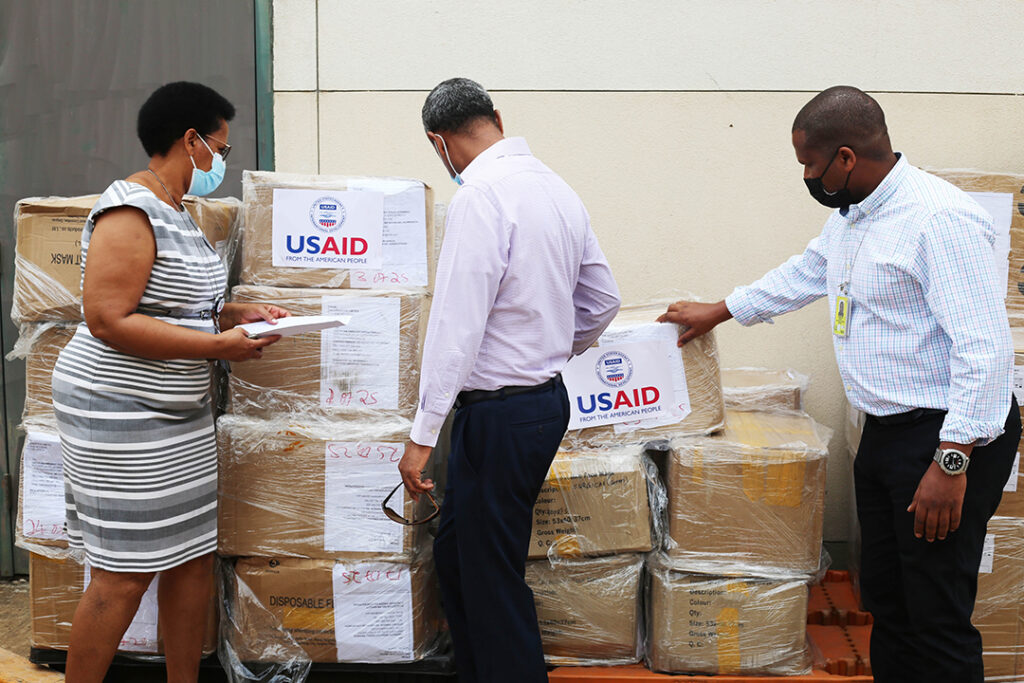ADF STAFF
The U.S. government donated more than 147 million Rwandan francs ($147,000) worth of personal protective equipment to Rwanda as infection rates from a third wave of COVID-19 declined in early October. The donated supplies included surgical masks, sterile gloves and protective boots.
The U.S. has donated more than $17 million to the country’s COVID-19 response since March 2020.
The support included the construction of hand-washing stations across Rwanda; support for public communications; staff and vehicles to support contact tracing; laboratory diagnostic equipment and supplies; support for training of frontline workers; medical equipment such as ventilators, hospital beds, intensive care units and mobile X-ray machines; and infection prevention and control supplies, including biohazard bags, alcohol and soap.
Rwanda’s innovative approach to COVID-19 — the use of robots, thermal cameras, drones and coronavirus-sniffing dogs — has earned global praise since the pandemic began.
Rwandan Health Minister Dr. Daniel Ngamije took time to recognize the country’s epidemiologists during a September conference on the role of epidemiology in the fight against COVID-19, malaria, health security, HIV and tuberculosis.
“My gratitude goes to the epidemiologists who have done a commendable job during this pandemic; we couldn’t convince decision makers without your evidence,” Ngamije said in a report by Rwandan newspaper The New Times.
Dr. Simon Nyovuura Antara, director of the African Field Epidemiology Network, said Rwanda helped strengthen epidemiology training programs.
“I want to remind the epidemiologists that you are the diseases investigators, especially the pandemics,” Antara said at the conference. “Rwanda has invested in the quality Field Epidemiology Programs and is contributing to the national and international level where they are now training colleagues in the other countries.”
The infection and death rates in Rwanda are far lower than in its neighboring countries. According to the Africa Centres for Disease Control and Prevention, Rwanda reported 99,300 COVID-19 cases and less than 1,300 deaths, as of October 21.
Former Rwandan Health Minister Agnes Binagwaho is considered an architect of the country’s current health system. Now a vice chancellor at the University of Global Health Equity in Kigali, Binagwaho said one reason the country has managed COVID-19 well is that the health system has earned the public’s trust by its response to past disease outbreaks.
“The first thing is — like during the Ebola crisis — people need not to be scared to say, ‘I have it,’” Binagwaho told The BMJ, a peer-reviewed medical journal. “They need to know that, by having it, they will not be villainised or exiled; they will not be slapped with a huge bill. Health systems must not worsen structural violence. Any crisis has a tendency to worsen inequity, unless we intervene. I think we’ve done that.”


1 Comment
Good job
I can participate to serve people in Ethiopia